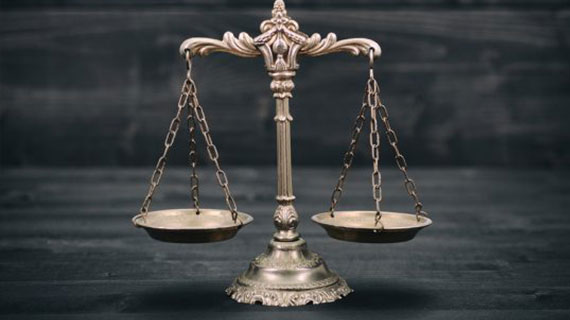Everyone wants to be treated fairly. They want justice for themselves and also for their loved ones. What exactly is justice? Right off the cuff, most say they have a good assumption what “justice is, for most have an idea of what is fair. Humans are created with a natural instinct of right and wrong; a conscience, an internal arbiter. So, you normally know when you or another crosses the line from right to wrong, and you certainly know when someone else treats YOU wrongly!
Yet, in this world we all observe and even experience a justice system which is quite uneven. The just are often found guilty and the guilty acquitted. Evil is called good, and good called evil. Influences other than straight-forward justice too often decide a case; that is, money, status, bribery, the identity of the accuser, and the identity of the aggrieved all variously help determine a verdict, of course not necessarily fairly.
This is why the accused innocent are often said to cry out to God for justice. They ask, “When will the wrongs done to me or others receive a just recompense? Whom can I go to to receive a just judgment? But human judges come in all stripes with many varying perspectives, opinions, and motivations, and all fall short of perfection.
In Nahum 1:3, the Bible defines justice: “The guilty are all punished. The Scripture declares, though, that every man, woman, and child is guilty; all fall short of the glory of God. Everyone, therefore, deserves punishment.
Nevertheless, Jesus makes a commitment through His Father’s heart of love and mercy to take on Himself the punishment fully deserved by all. According to Nahum, justice means none of the guilty go unpunished. Into this maelstrom of justice steps Jesus. Justice is not diminished by His actions; His personal substitution for our guilt meets every demand of justice. When God the Father’s eyes look on the guilty who are in Christ, He sees His Son’s perfection. The righteousness of His beloved Son is what meets His gaze.
All of this is true, but what does it do for your current situation of the daily demands of unmet justice? Small things often go unrequited, bigger things become extremely aggravating, and the biggest things can be devastating to your life. The Bible talks about “justice stumbling in the street. This is what it is referring to. Receiving justice is not a given in life. That which is unjust frequently wins, at least temporarily. The unjust action may outlive your own life, meaning you will not see justice in everything in this life.
Can you live with that? The Bible says, “’Vengeance is mine,’ says the Lord! Such justice is not promised fully until the Day of Judgment. This necessitates trusting God now and being patient for His timing. Trust and patience are not easy. In fact, they are downright difficult. Nonetheless, this is what you are called on to practice, the requirement of faith. Salvation must have your faith, and so does living. Living with injustice requires a lot of faith, and “faith is confidence in what we hope for and assurance about what we do not see (Hebrews 11:1).
Justice will not be a part of your everyday life, but the Lord is, and He will never leave you nor forsake you. When injustice overtakes you, put your eyes on Jesus.
“Whate’er my God ordains is right; His holy will abideth. I will be still whate’er He doth and follow where He guideth. He is my God; though dark my road, He holds me that I shall not fall. Wherefore to Him I leave it all.
(1st verse of Samuel Rodigast’s hymn, “Whate’er My God Ordains Is Right, 1675)
| If you enjoyed this devotional, sign up below to receive it weekly: |
Stay Updated
Sign up for our monthly newsletter and weekly devotional











